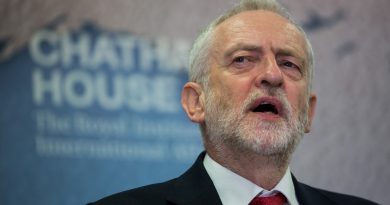This Week in the News – Brexit edition (March 31, 2017)
This week the so-called ‘Bexit’ – the United Kingdom’s withdrawal from the European Union – was widely discussed in the European (and overall Western) media, not least because of Theresa May’s delivery of a formal request for the process to begin on the 29th of March. In this blog post, we are going to look at some op-ed pieces published in influent newspapers to get a sense of how this topic was treated. I’ll give you a hint: it hasn’t been pretty overall, but some pieces have nonetheless been favourable.
Why bother with opinions published in newspapers?
Aren’t media outlets supposed to be unbiased? Opinions can influence people, and there’s no such thing as unbiased anything. The Telegraph points out to the dangers of BBC’s alleged bias against ‘Brexit’, which the newspaper argues “could do real harm to Britain,” since the British media giant “helps shape Britain’s idea of itself – and the idea others have of us.”
In this sense, according to Bloomberg, a number of European newspapers decided to publish editorial pieces regarding the subject in order to “bypass the technocrats, diplomats and politicians and appeal directly to voters also in Ireland, Germany, France, Poland and Italy who can hold the key to the outcome of two years of negotiations.”
The position of European media outlets
British newspaper the Guardian published a somewhat unenthusiastic editorial piece on the subject, following other similarly unenthusiastic op-ed pieces in previous days/weeks. This week’s article depicts the ‘Brexit’ quite negatively for both the UK and the EU, claiming that it “will weaken the remaining 27 members, and it is likely to set this country on a decade or more of instability.”
The editorial argues in favour of the protection of EU nationals that chose to remain in the UK in an unusual activist move on behalf of a newspaper, together with Le Monde, Spiegel Online, La Vanguardia, and Gazeta Wyborcza, calling “for Britain and the 27 member states to recognise on a reciprocal basis the rights of each other’s citizens.”
Interestingly, the Irish Times did publish an op-ed piece on the ‘Brexit’ triggering, but it was so descriptive and dispassionate that it would seem that Ireland is on the opposite end of the planet and this does not concern it enough to take a side.
According to an opinion piece published in the Financial Times, “all the power lies with Europe and Britain holds no cards in the coming negotiations.”
![]() This work is licensed under a Creative Commons Attribution-NonCommercial-ShareAlike 4.0 International License.
This work is licensed under a Creative Commons Attribution-NonCommercial-ShareAlike 4.0 International License.




